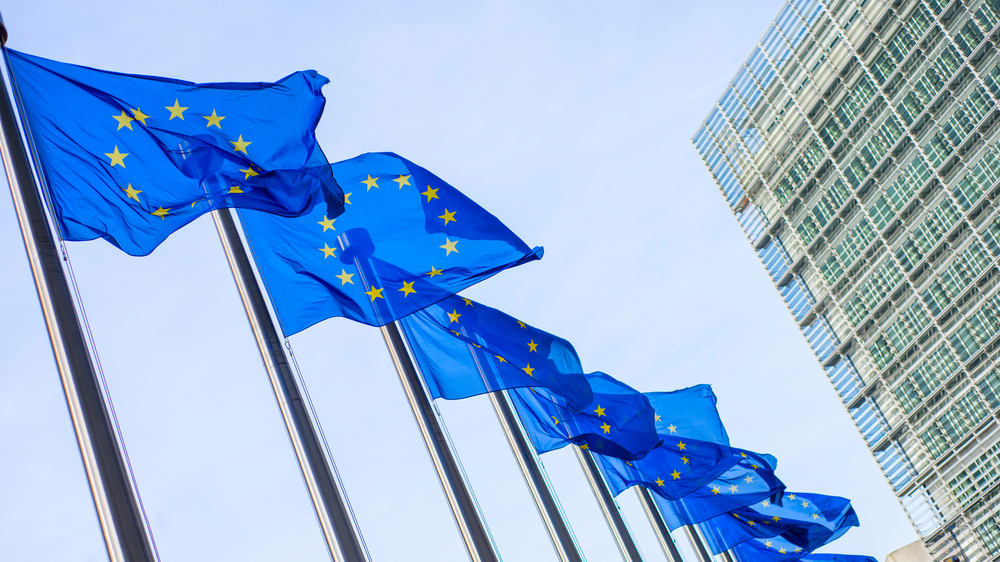On 18 July, the European Council adopted of the 18th Russia sanctions package, aimed at further ramping up pressure on the country.
As explained, the EU’s new sanctions focus on five building blocks: cutting Russia’s energy revenues, hitting Russia’s banking sector, further weakening its military-industrial complex, strengthening anti-circumvention measures, and holding Russia accountable for its crimes against Ukrainian children and cultural heritage. With this package, the number of listed vessels in Russia’s shadow fleet reaches a total of 444 vessels, and the number of individual listings exceeds 2,500. This package also includes new sanctions against Belarus.
The 18th package includes -but is not limited to- the following key elements:
Energy measures
Lowering of the Oil Price Cap for crude oil from 60 to 47.6 USD, and introduction of an automatic and dynamic mechanism for its review in the future. The new system will ensure that the cap is always 15% lower than the average market price for Urals crude in the previous period of six months, resulting in both predictability for operators and downward pressure on Russian energy revenues.
Transaction ban for Nord Stream 1 and 2: This means no EU operator can engage in any transaction regarding the Nord Stream pipelines.
Import ban on refined oil products derived from Russian crude: This means a clampdown on refined product imports made from Russian crude that are processed abroad and delivered into the EU. This will prevent Russian crude oil from reaching the EU market in any form.
105 additional vessel listings, meaning that a total of 444 vessels in Russia’s shadow fleet are now listed by the EU. Three LNG tankers have been delisted following firm commitments that these vessels will no longer engage in the transport of Russian energy to the Russian Yamal and Arctic 2 projects. Listed vessels are subject to a port access ban and a ban on receiving services. Alongside the listings of these unseaworthy tankers, the EU is conducting outreach to flag states to ensure that ship registers do not allow these tankers to sail under their flag.
Full-fledged listings – asset freezes, travel bans – throughout the shadow fleet value chain. These target both Russian and international companies managing shadow fleet vessels, traders of Russian crude oil, as well as a major customer of the shadow fleet, a refinery in India with Rosneft as its main shareholder.
For the first time, the EU is also designating a captain of a shadow fleet vessel as well as an operator of an open flag registry. One entity in the Russian LNG sector is also included in the latest listings.
Financial measures
The EU has expanded its sanctions from a messaging services ban to a full transaction ban with 45 Russian banks, including 22 newly added ones.
EU firms are now also banned from transacting with third-country financial operators (including crypto providers) that help Russia evade sanctions.
A new transaction ban targets the Russian Direct Investment Fund (RDIF), its subsidiaries, and related financial institutions.
The provision of key banking software to the Russian government and companies is now prohibited.
Trade measures
The package expands export restrictions and bans to further disrupt and weaken Russia’s military-industrial complex. These include:
Restrictions on additional advanced technologies;
Further export bans that correspond to almost €2.1 billion of exports in 2024 terms.
Anti-circumvention measures
This package adds 26 entities to the list of those providing direct or indirect support to Russia’s military industrial complex or engaging in sanctions circumvention. This includes 15 entities established in Russia and 11 in other third countries (4 in Türkiye and 7 in China/Hong Kong).
The transit ban is expanded by adding 8 Combined Nomenclature (CN) codes from the list of Economically Critical Goods – updated on 24 February 2025 – used for construction and transport, two of which are of direct relevance to the energy industry. This means that those goods can no longer transit the territory of Russia when exported from the EU to third countries.
The package also introduces a dedicated catch-all provision to address the risk of circumvention via third countries of exports of advanced technology items. This will provide Member States with an additional tool to stop and investigate suspicious shipments and prevent the circumvention of sanctions.
New measures against Belarus
In parallel, the package includes additional measures on Belarus, namely prohibiting arms procurement from Belarus, adding a catch-all provision for advanced technology items, transforming the ban on specialised financial messaging services into a full transaction ban, and adding measures to protect Member States from arbitration.
This package also includes additional export restrictions on sensitive goods, technologies and industrial goods. Finally, it adds one (1) entity subject to restrictions and eight (8) additional entities subject to asset freeze.
